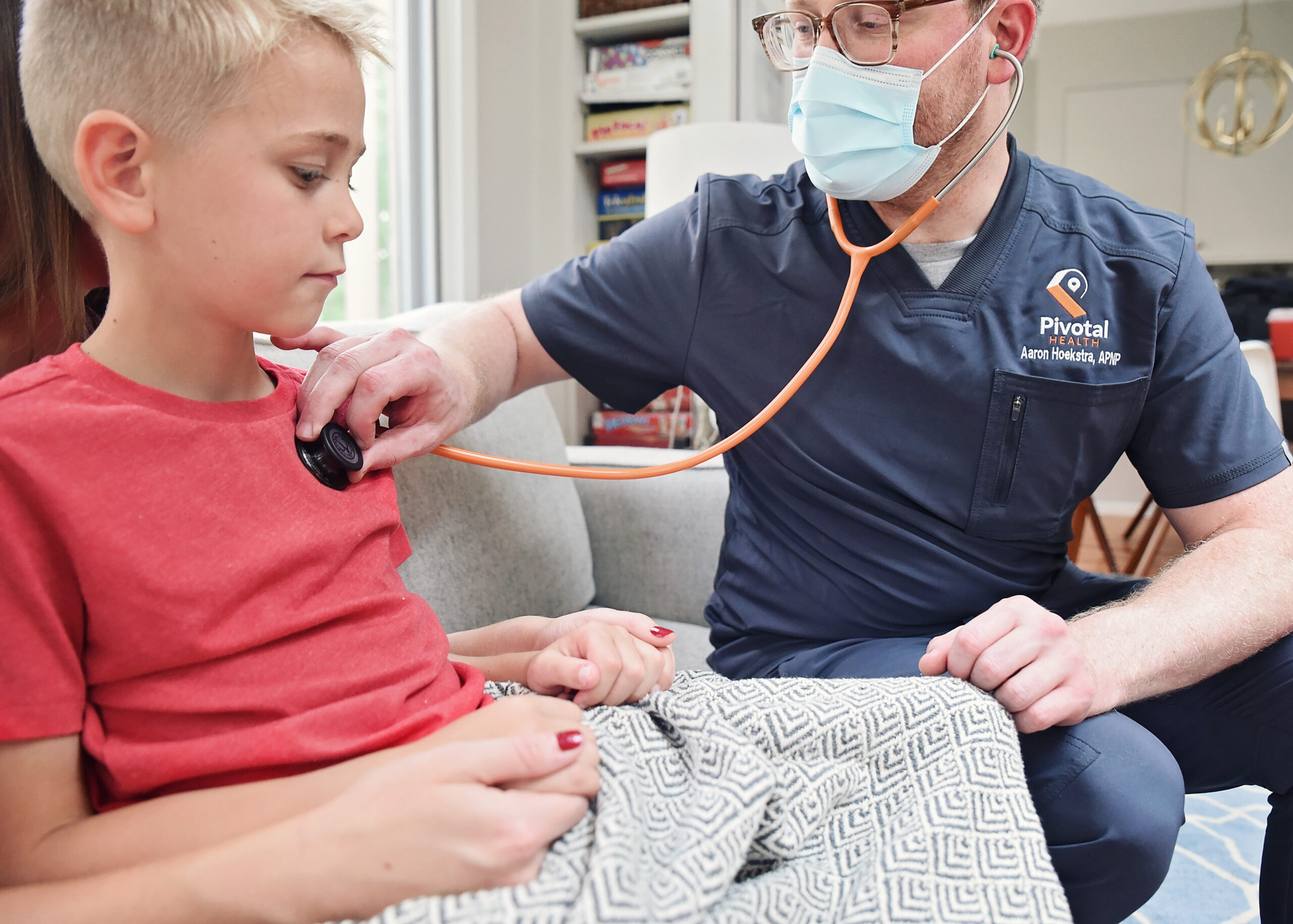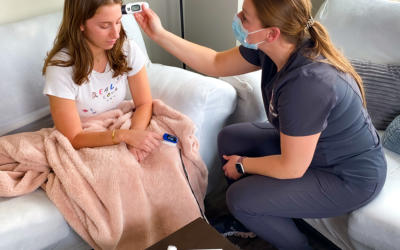The risks of taking antibiotics when you don’t need them.
As parents, we’ll do anything to help our children of all ages feel better when they’re sick. When they’re suffering from a bad cough, fever, or sore throat, it’s natural to hope that antibiotics might speed their recovery. Especially if that child is a college student — the stakes are high when they’re sick and missing class.
Many parents ask — or even demand — providers for antibiotics “just to be safe.” But research proves that taking antibiotics unnecessarily isn’t just unhelpful. On top of that, taking unnecessary antibiotics can seriously harm a person’s health.
But why not take antibiotics, just in case? Antibiotics aren’t like taking an extra vitamin — they’re powerful medications that can significantly disrupt and damage your body’s natural systems, like your immune system, digestive system, and more. Taking them unnecessarily exposes our bodies to serious risks without any benefit. Let’s break down the possibilities.
How can Unnecessary Antibiotics Harm You?
Many people believe antibiotics are harmless even if they might not help. But taking antibiotic drugs when they aren’t needed can trigger serious, sometimes long-lasting health problems. Here are five ways unnecessary antibiotics can damage your child’s health, regardless of age:
- C. difficile Infection. We take antibiotics to kill bacteria, but they also kill off normal gut bacteria, which can allow a dangerous organism called C. difficile to multiply. Taking broad-spectrum antibiotics is the most significant riskfactor for C difficile infection, which causes severe diarrhea and inflammation of the colon, sometimes lasting months and requiring extensive treatment. In fact, about 1 in 6 people who contract C. diff will get it again two to eight weeks after that, according to the CDC. This potentially deadly intestinal infection affects 500,000 Americans annually and young people taking unnecessary antibiotics are increasingly at risk of coming down with C. diff.
- Severe Allergic Reactions. Antibiotics are one of the most common causes of drug allergies, and reactions can become more severe with repeated exposure. What caused only mild itching during one course of antibiotics could trigger a life-threatening reaction the next time and the risk of severe allergic reaction increases with repeated exposure to the antibiotic.
- Tendon Ruptures and Joint Problems. Some antibiotics, particularly fluoroquinolones like ciprofloxacin (Cipro), can weaken the connective tissue in your body, no matter your age or fitness level. This damage can occur suddenly and without warning, sometimes long after you’ve finished taking the medication.
- Lasting Gut Microbiome Damage. Your gut contains trillions of beneficial bacteria that help digest food and protect your health. Antibiotics can devastate this delicate ecosystem, leading to long-term health problems that persist long after the medication is finished. Unfortunately, this imbalance can lead to chronic digestive problems, IBS, or other issues that can take months or years to correct.
- Fungal Infections. Your body maintains a careful balance between bacteria and fungi. When antibiotics eliminate protective bacteria, opportunistic fungi can quickly multiply and cause uncomfortable, recurring infections. Regardless of age or health, this imbalance can lead to oral thrush or vaginal yeast infections that can become chronic and difficult to treat.
When should you take Antibiotics?
Many parents are surprised to learn that most common illnesses don’t require antibiotics at all. While antibiotics are powerful, life-saving medications, they only work against bacterial infections — not viruses. Here are some tips to help you understand when antibiotics are truly needed and when they might cause more harm than good:
- Bacterial Infections That Need Antibiotics. Some bacterial infections absolutely require antibiotic treatment. Bacterial pneumonia can be life-threatening without proper antibiotics. Strep throat, when confirmed by testing, typically needs antibiotics. Urinary tract infections can spread to the kidneys if left untreated, and some skin infections, like cellulitis, require antibiotics to prevent dangerous spread of the infection.
- Viral Infections That Never Need Antibiotics. The common cold, flu, mono, and COVID-19 are all caused by viruses, which means antibiotics won’t help at all. In fact, about 90% of respiratory infections are viral. Giving antibiotics for these illnesses is like using weed killer on a mole infestation in your yard — it won’t solve the problem, but it will definitely cause damage.
- “Wait and See” Conditions. Many conditions, like ear infections in adults, sinus infections, and bronchitis usually resolve on their own without antibiotics. Studies show that 80% of sinus infections and most cases of bronchitis get better on their own within two weeks. For these conditions, your Pivotal Health provider might recommend watching and waiting before considering antibiotics.
- Conditions That Need Testing First. Some infections, like strep throat, can be easily confused with viral infections. That’s why testing is crucial — only about 20-30% of sore throats are actually strep infections requiring antibiotics. The only way to know for sure is through a rapid strep test.
- Symptoms That Respond Better to Other Treatments. Parents and children often report symptoms that actually respond better to other treatments instead of antibiotics. Coughs often improve with honey (in children over 1 year) and humidity. Sore throats usually respond well to pain relievers and saltwater gargles. Nasal congestion typically improves with saline sprays and humidity — not antibiotics. And college students often do not get enough sleep to support their recovery, leading to prolonged illness.
What Parents Should Know About Demanding Antibiotics
Your advocacy for your child’s health is important, but pushing for unnecessary antibiotics can backfire and damage their health. While it’s natural to want to “do something” when your child is sick, sometimes the safest action is to avoid unnecessary treatment. Antibiotics are powerful tools that come with real risks. When you’re tempted to push for antibiotics “just in case,” consider whether you might be putting your loved one at risk rather than protecting them.
Adopting a cautious approach to antibiotics means supporting your child’s recovery by encouraging them to rest, hydrate, and educating them about symptom relief through over-the-counter medications and humidifiers or vaporizers. It’s important to remember that many upper respiratory infections are viral and will resolve on their own with enough rest.












